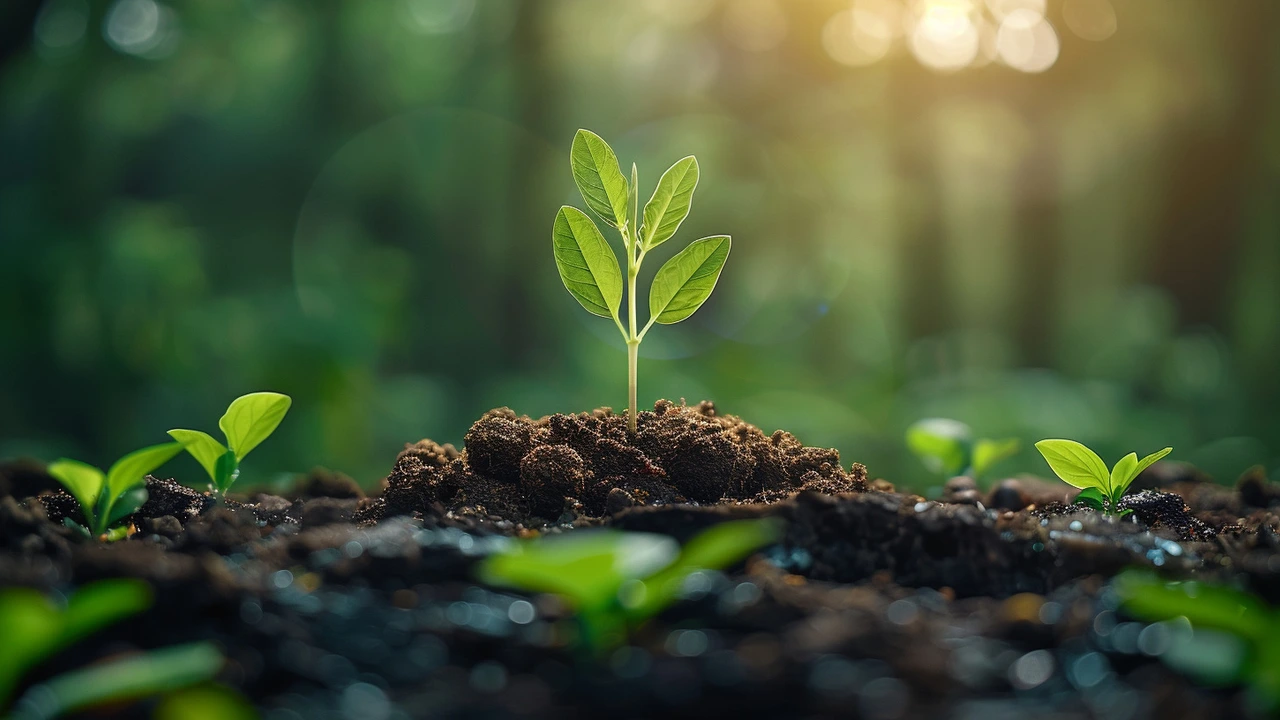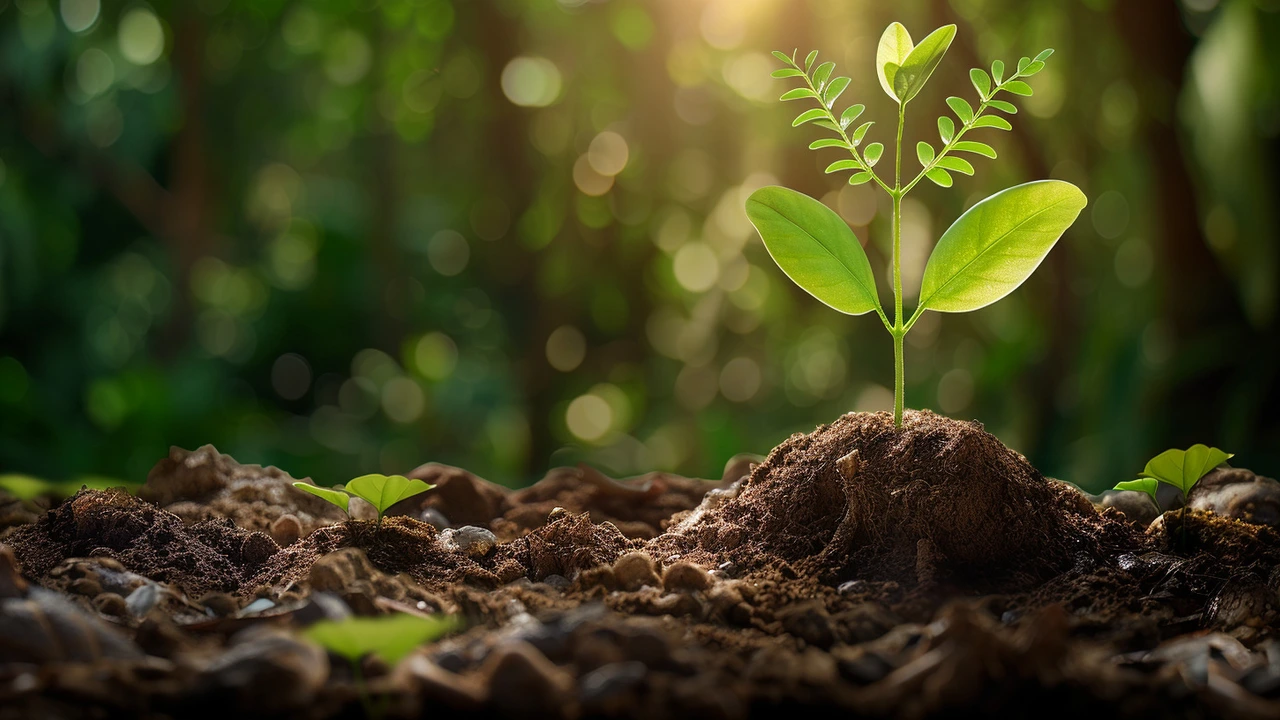World Environment Day 2024: Date, Theme, History, and Importance for Sustainable Future

Introduction to World Environment Day 2024
World Environment Day (WED) stands as a beacon of hope and action for millions around the globe, celebrated on June 5th each year. It is more than just a day on the calendar; it is a call to action, a moment for humanity to reflect on its relationship with the natural world. The event encourages collective efforts and individual actions to combat pressing environmental challenges that threaten the planet's health and, consequently, our own. Established in 1972 by the United Nations Environment Programme (UNEP), WED has evolved into the largest global platform for environmental public outreach and awareness.
In 2024, the Kingdom of Saudi Arabia will have the honor of hosting the World Environment Day celebration. The focus this year is on land restoration, desertification, and drought resilience, under the inspiring theme 'Our Land, Our Future, We Are Generation Restoration.' This theme reflects not only the need to restore our degraded lands but also the collective determination to ensure a sustainable future for generations to come.
The Historical Roots of World Environment Day
The inception of World Environment Day in 1972 was a significant milestone in global environmental advocacy. The first-ever UN conference on the human environment in Stockholm gave birth to this yearly event. It was a watershed moment that underscored the growing awareness and concern for the environmental crisis facing the world. The conference's outcomes delineated the critical areas requiring urgent attention, and establishing a special day dedicated to the environment was a part of this visionary agenda.
Since its inception, World Environment Day has provided a unified platform for diverse environmental issues. Over the decades, themes have varied, reflecting the evolving priorities in environmental policy and public concerns. From pollution control and the illegal wildlife trade to combating air pollution and food waste, every theme has been a clarion call to address specific environmental challenges through innovative solutions and sustained efforts.
The Significance of Hosting World Environment Day in Saudi Arabia
This year’s host, the Kingdom of Saudi Arabia, brings a unique perspective and set of challenges and opportunities. As a country deeply affected by desertification and drought, Saudi Arabia's role in this year's WED is pivotal. The theme 'Our Land, Our Future, We Are Generation Restoration' resonates strongly with the kingdom's ongoing efforts to combat land degradation and promote sustainable land management practices.
Saudi Arabia's Vision 2030, a robust economic and environmental reform agenda, underscores the importance of sustainable development. By hosting World Environment Day 2024, the country signals its commitment to global environmental goals and highlights the urgent need to address the desertification and drought challenges that impact not just the region but the world at large.
The Central Theme: 'Our Land, Our Future, We Are Generation Restoration'
The theme for World Environment Day 2024 is particularly significant as it aligns with the UN Decade on Ecosystem Restoration (2021-2030). This global initiative aims to prevent, halt, and reverse ecosystem degradation on every continent and in every ocean. The message is clear: to restore ecosystems means to revive not just the environment but economies, societies, and cultures.
Land restoration is a cornerstone of this theme. It is about more than planting trees; it involves restoring landscapes, reviving ecosystems, and ensuring that the soil continues to sustain human life and biodiversity. As climate change intensifies, restoring our land becomes a key strategy in mitigating its effects. It is a proactive approach to ensuring food security, combating climate change, and defending biodiversity.
Previous Themes and Their Impact
Reflecting on previous World Environment Day themes offers insight into the evolution of the global environmental movement. Each year, the theme focuses collective action on a specific environmental issue. For instance, the 2019 theme 'Beat Air Pollution' drew widespread attention to the dangers of air pollution and mobilized actions to improve air quality around the world. Similarly, 'Beat Plastic Pollution' in 2018 harnessed global efforts to reduce plastic waste, leading to significant policy changes and increased public awareness about plastic's environmental impact.
These themes have been instrumental in shaping global environmental policies and practices. They act as catalysts for policy changes, inspire grassroots initiatives, and foster international cooperation. By focusing the world's attention on specific issues, World Environment Day has successfully driven changes that have lasting impacts.
The Role of Individuals and Communities
While World Environment Day is a global platform, its success hinges on individual actions. Every person has a role to play in protecting the environment, and WED provides an opportunity to amplify these efforts. Whether it's reducing waste, conserving water, or supporting renewable energy, individual actions, when multiplied by millions around the world, can lead to substantial positive changes.
Communities, too, play a vital role. Local initiatives often serve as the testing ground for innovative solutions to environmental problems. From community clean-up drives to urban farming projects, these grassroots efforts can scale up to create significant impact. WED encourages communities to share their successes and challenges, fostering a collaborative environment where solutions can be adapted and applied globally.
Looking Forward: The Future of World Environment Day
As we look to the future, the significance of World Environment Day grows. With environmental issues becoming more pressing, WED's role in raising awareness, fostering action, and driving policy becomes ever more critical. Each year brings new challenges and opportunities, and with each celebration, we inch closer to a sustainable future.
The 2024 theme and focus on land restoration signify a crucial step in this journey. It underscores the importance of taking immediate and sustained action to restore our ecosystems. As we celebrate World Environment Day 2024, let us all commit to being part of 'Generation Restoration.' Our collective actions today will shape the future of our planet. Together, we can ensure that our land, indeed, has a bright and sustainable future.

Conclusion
World Environment Day 2024 is a call to action that transcends borders and unites people worldwide in a common cause. By focusing on land restoration, desertification, and drought resilience, it highlights the urgent need for collective effort in restoring our planet's health. As Saudi Arabia leads this year's celebration, the theme 'Our Land, Our Future, We Are Generation Restoration' invites us all to take part in a movement that holds the promise of a healthier, more sustainable planet for future generations. Let this day be a reminder and a motivation for each of us to contribute to safeguarding our environment, ensuring that our land remains vibrant and capable of sustaining life for years to come.
When I read about World Environment Day 2024, I’m swept up in a tide of hopeful reverie that feels almost cinematic in its scope; the very notion of a global community converging on the idea of land restoration ignites a fire that burns brightly across continents. The theme 'Our Land, Our Future, We Are Generation Restoration' resonates like a battle cry for the planet, demanding that each of us step onto the stage of ecological stewardship with unwavering conviction. From the dusty dunes of Riyadh to the lush valleys of the Pacific Northwest, the call to reverse desertification is not merely a scientific endeavor but a poetic reclamation of humanity’s bond with Earth. I find myself visualizing massive networks of grassroots initiatives, where volunteers plant hardy native shrubs that stitch together fractured soils, while engineers deploy cutting‑edge moisture‑capture technologies that whisper promises of rain to arid lands. The historical roots of World Environment Day, birthed in 1972, remind us that progress is a marathon, not a sprint, and that each decade brings a new stanza in the unfolding epic of environmental advocacy. The United Nations’ Decade on Ecosystem Restoration adds a rhythm to this narrative, turning policy into a symphony of action that harmonizes biodiversity, climate resilience, and human livelihoods. As we stand on the precipice of 2024, the significance of Saudi Arabia hosting this pivotal event cannot be overstated; it is a testament to the nation’s ambition to transform its own arid landscapes into thriving oases, showcasing that even the most formidable deserts can be tamed by collective will.
Moreover, individual actions, when multiplied, become the chorus of change-simple habits like composting kitchen scraps, reducing water waste, or supporting regenerative agriculture echo louder than any single megaphone. Communities, too, act as crucibles of innovation, testing experimental approaches such as solar‑powered desalination or agroforestry, which can then be scaled to global solutions. The urgency is palpable; climate change accelerates the erosion of our soils, making restoration not a luxury but a necessity for food security and cultural survival. Every seed planted, every policy drafted, every conversation sparked on this day contributes to a mosaic of hope that, if pieced together correctly, will illuminate a future where our lands are fertile, our waters clear, and our children inherit a planet brimming with life.
In the grand tapestry of human history, moments like World Environment Day are the threads that bind us across time, reminding us that while the challenges are daunting, the capacity for compassion and ingenuity is boundless. Let us, therefore, pledge today to be vigilant gardeners of the Earth, nurturing the soil beneath our feet and the ecosystems that sustain us all.
The integration of jargon like "ecosystem services" and "carbon sequestration" into mainstream discourse is a promising sign that the scientific community's language is permeating public awareness. By highlighting Saudi Arabia's Vision 2030, we can see a concrete policy framework that aligns economic diversification with environmental stewardship, which is essential for long‑term sustainability. The emphasis on land restoration also dovetails with emerging technologies in precision agriculture, which can improve water use efficiency in drought‑prone regions. It's encouraging to note that the UN's Decade on Ecosystem Restoration provides a robust, data‑driven roadmap for monitoring progress across different biomes. Overall, the synergy between international agendas and national commitments could catalyze a measurable decline in desertification rates if implemented effectively.
Desertification is a critical issue that demands immediate action.
Yo, love the optimism but we need more than talk – actual funds and real, not just buzzword projects. The tech hype is cool, but if you don't get growers on board, it's just another white‑paper. Also, typo alert: "desertifcation" is a big no‑no. Let's get our act together and plant some real trees!
While the enthusiasm surrounding World Environment Day is commendable, one must critique the superficial treatment of systemic issues. The rhetoric often glosses over the entrenched political and economic interests that perpetuate land degradation. A more rigorous analysis would demand accountability from corporations exploiting natural resources, as well as transparent metrics to gauge the efficacy of restoration initiatives.
Honestly, the post underestimates the scale of corruption that hinders genuine restoration efforts. It's not enough to champion slogans; we need enforceable regulations and whistleblower protections.
Totally agree that community‑driven projects are the backbone of this movement. When locals feel ownership, the sustainability of restoration skyrockets. It’s awesome to see more NGOs partnering with grassroots groups to provide resources and training.
Sure, community involvement sounds great, but statistics show that only about 12% of these initiatives actually meet their stated goals. We need to be realistic about the limitations and address funding gaps head‑on.
The article paints an overly rosy picture, ignoring the fact that many restoration projects fail due to poor site selection and inadequate monitoring. It’s a shallow narrative that doesn’t hold up under scrutiny.
Wow, another lofty vision with zero concrete steps-typical. If you can’t back up the hype with data, why bother?
One could argue that the very act of commemorating such a day reflects humanity's persistent quest for meaning amid ecological chaos. In that sense, even a symbolic gesture holds philosophical weight.